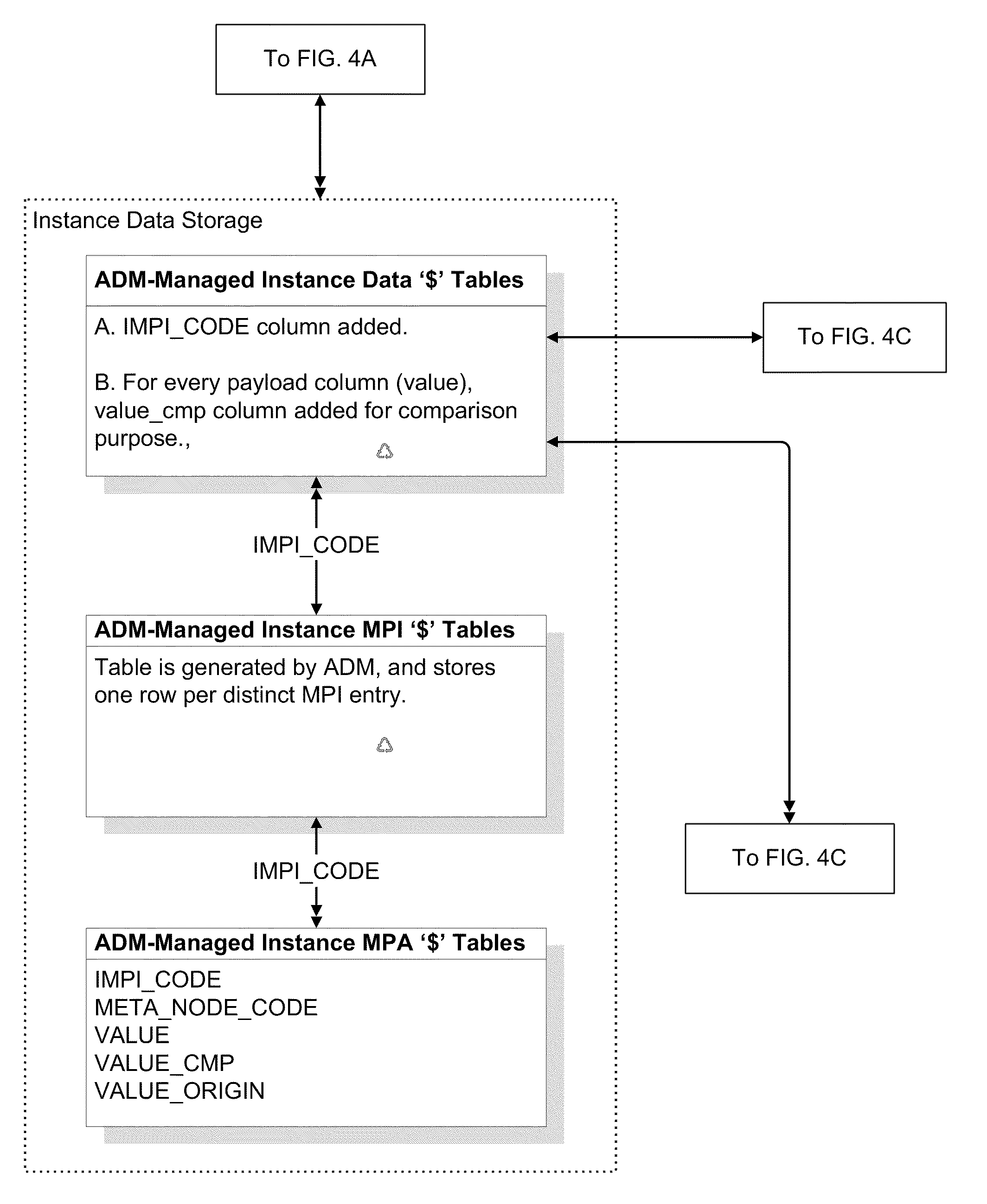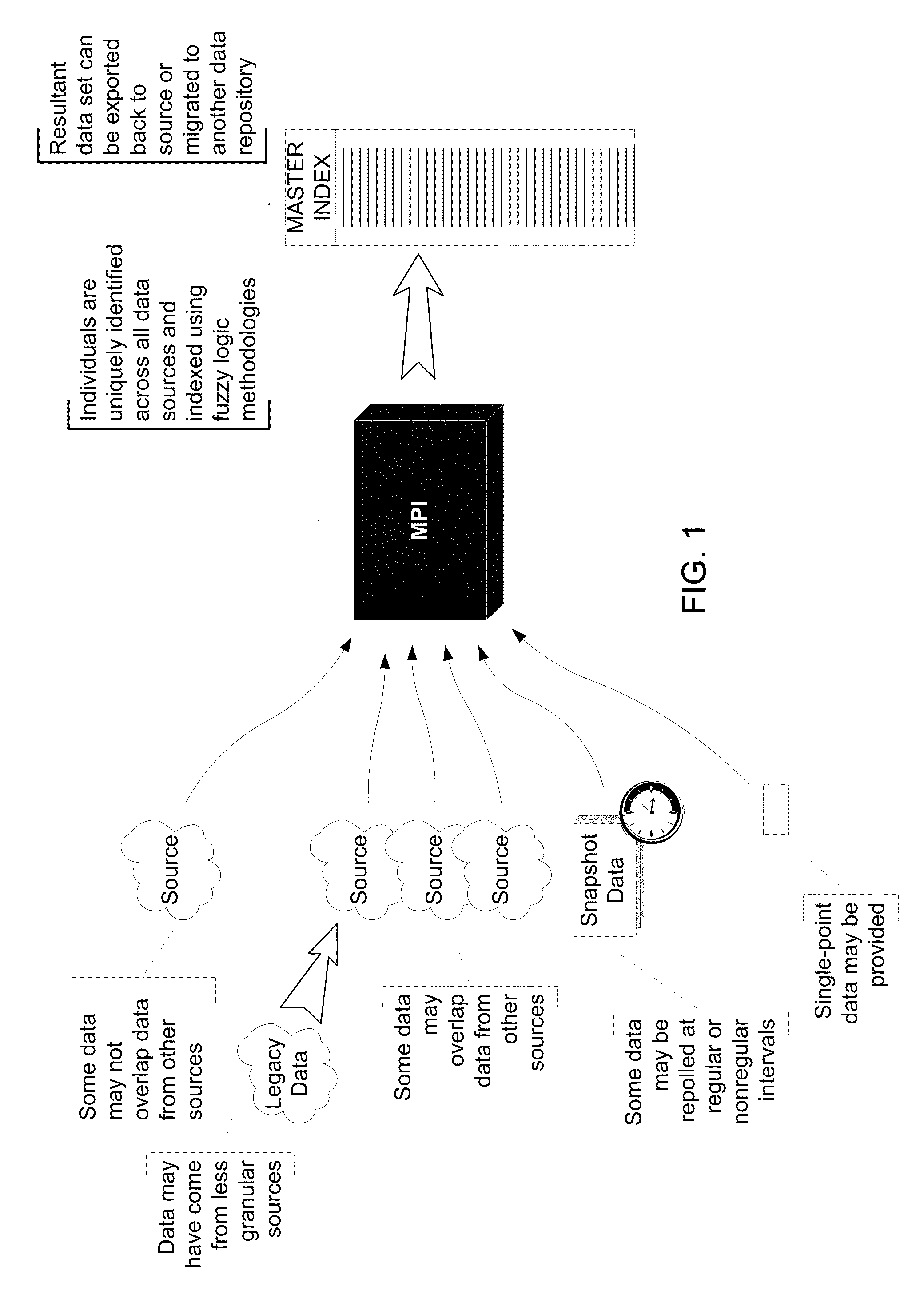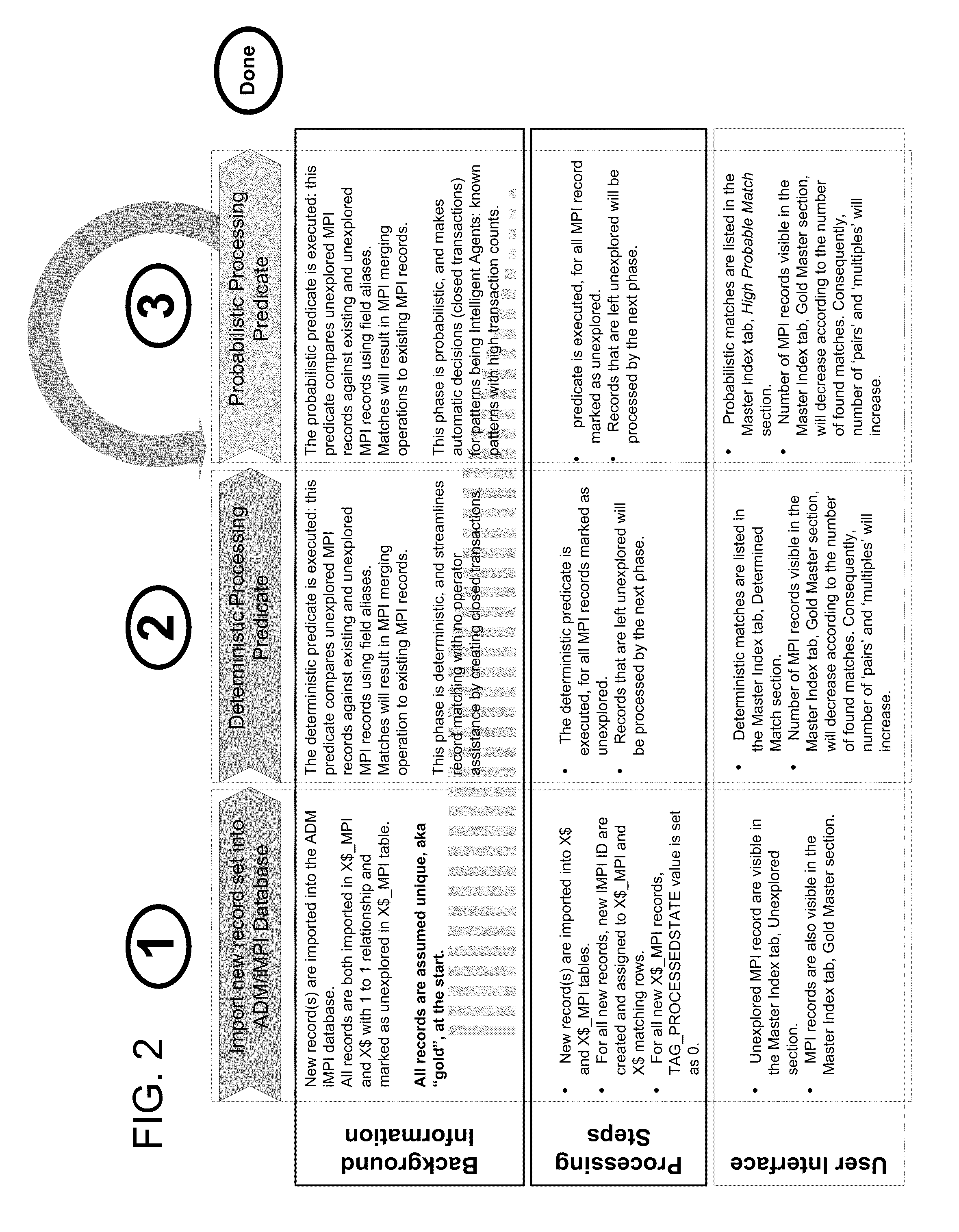System and Process for Record Duplication Analysis
a record duplication and analysis system technology, applied in the field of system and process for analyzing records, can solve the problems of high time-consuming and laborious analysis of patient data, inability to accurately analyze patient data, and inability to accurately predict the effect of patient data
- Summary
- Abstract
- Description
- Claims
- Application Information
AI Technical Summary
Benefits of technology
Problems solved by technology
Method used
Image
Examples
Embodiment Construction
[0031]An iMPI system that includes at least one database and a set of middle tier objects, such as COM objects or web services. Client applications may communicate with the system through an XML communications protocol. System data may be organized and managed through a data manager for at least three different purposes: to configure parameters for the process matching algorithms, to execute the process matching algorithms that will result in organized transactions, and to review the transactions.
[0032]One goal of the MPI system may be to reduce or eliminate the need for human decision-making. To this end, the system employs an effective comparison process initially based on a multi-membership Bayesian method. This process relies on a complex but fast mathematical formula in order to obtain posterior probabilities of potential matches, as discussed in greater detail below.
[0033]The MPI system referred to herein may be called iMPI, with the i representing the intelligence with which ...
PUM
 Login to View More
Login to View More Abstract
Description
Claims
Application Information
 Login to View More
Login to View More - R&D
- Intellectual Property
- Life Sciences
- Materials
- Tech Scout
- Unparalleled Data Quality
- Higher Quality Content
- 60% Fewer Hallucinations
Browse by: Latest US Patents, China's latest patents, Technical Efficacy Thesaurus, Application Domain, Technology Topic, Popular Technical Reports.
© 2025 PatSnap. All rights reserved.Legal|Privacy policy|Modern Slavery Act Transparency Statement|Sitemap|About US| Contact US: help@patsnap.com



